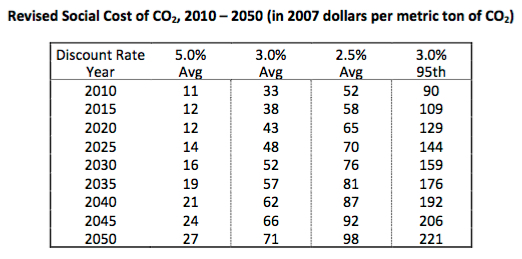Region: National
A Bitter Pill
Will Trump’s Actions Unravel the Paris Agreement? It’s complicated.
It’s official: President Trump has decided to pull the U.S. out of the Paris agreement. So far as I c an, there’s little support for his decision from anyone who is not beholden to the coal industry. Sadly, this decision is only one way in which this President has dashed the hopes of the world. …
Continue reading “A Bitter Pill”
CONTINUE READINGAll You Need to Know About the Paris Agreement
Five posts About the Paris Agreement in One Place
Today we will finally know whether Donald Trump will make good on his campaign promise to withdraw from the Paris Agreement. As background, here are five posts I’ve written since the agreement was adopted in December of 2015. First, Thoughts on the Accomplishments of the Paris COP , which explains why Paris is such a big …
Continue reading “All You Need to Know About the Paris Agreement”
CONTINUE READINGBeyond Cap-and-Trade and Carbon Taxes
The idea of putting a price on carbon has popped up in unexpected ways.
Conventionally, carbon pricing takes place when the government either creates a cap-and-trade scheme or a carbon tax. But we’ve begun to see carbon prices popping up in other interesting ways. The idea of putting a price on carbon seems to have influence well outside of the classic tax-or-trade models. For instance, carbon pricing has moved beyond …
Continue reading “Beyond Cap-and-Trade and Carbon Taxes”
CONTINUE READINGThe Way Trump Withdraws From the Paris Agreement Is Almost As Important As Whether He Does
Withdrawal from the UNFCC would say “we don’t even want to talk about climate change, let alone do anything about it”
If, as news outlets are reporting, the Trump Administration makes good on its campaign promise to withdraw from the Paris Agreement, one thing to watch for is how it withdraws. If Trump takes the dramatic step of withdrawing from the United Nations Framework Convention on Climate Change, (as opposed to simply withdrawing from the Paris …
CONTINUE READINGSlowly and Grudgingly, Change is Coming to Coal Country
Coal is slowly fading from the power mix, even in Mitch McConnell country,
A sign of the times: Fox News has reported, without comment, that the Kentucky Coal Museum is installing solar panels to save money. This is part of a larger trend. On Saturday, the NY Times reported on shifts in power production in states like West Virginia and Kentucky. For instance, Appalachian Power has “closed three …
Continue reading “Slowly and Grudgingly, Change is Coming to Coal Country”
CONTINUE READINGWhither WOTUS?
Trump ordered agencies to reconsider Clean Water Act jurisdiction. Easier said than done.
President Trump ordered EPA and the Army Corps to review the Obama Administration’s WOTUS rule, which sets expansive bounds on federal jurisdiction over water bodies and wetlands. The agencies have sent the White House a proposal to rescind the WOTUS rule and revert to earlier rules until they can come up with a replacement. In my …
Continue reading “Whither WOTUS?”
CONTINUE READINGUCLA Law Conference Webcast Today: State Climate Policy in the Trump Era
Symposium Features Sessions on California, Federal, and Multistate Greenhouse Gas Reduction Policy
UCLA Law’s Emmett Institute on Climate Change and the Environment is hosting a full day event today on the timely topic of State Climate Policy in the Trump Era on Monday, May 22, 2017. There will be a live webcast for those who cannot join the event in person. Full details are linked here. And here’s …
Continue reading “UCLA Law Conference Webcast Today: State Climate Policy in the Trump Era”
CONTINUE READINGWhither the Social Cost of Carbon?
Trump rescinded the Obama Administration’s estimate. Now what?
Republicans vehemently attacked the Obama Administration’s estimate of the social cost of carbon. Trump withdrew that estimate and directed individual federal agencies to do their own estimates. The agencies will now be faced with a number of problems, and it’s not clear that they are well positioned to deal with them. They might prefer to …
Continue reading “Whither the Social Cost of Carbon?”
CONTINUE READINGChannels of Change
Even Trump can’t kill progress. Here’s why.
Trump won’t be able to undo all of Obama’s legacy on climate change, but much of it will be stymied. State governments will continue to remain active, and will fight Trump in the courts, along with environmental groups. And in a series of recent posts, I’ve described other channels that will continue to operate: Municipalities. …
Continue reading “Channels of Change”
CONTINUE READINGWhat Do We Really Gain If the U.S. Stays in the Paris Agreement?
As Long As Trump Is President
(This post is cross-posted at https://takecareblog.com/blog/what-do-we-really-gain-if-the-u-s-stays-in-the-paris-agreement.) The Trump Administration will apparently decide soon whether to keep the United States as a party to the Paris Agreement. Although I understand why so many observers have argued that the U.S. should remain in Paris, I have already expressed my view that remaining in Paris is at best …
Continue reading “What Do We Really Gain If the U.S. Stays in the Paris Agreement?”
CONTINUE READING











